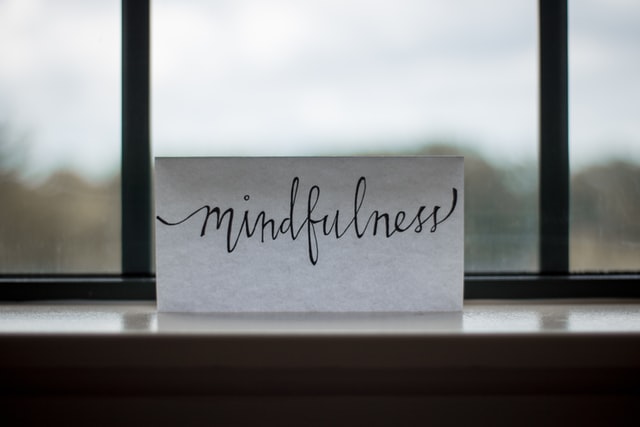Mindfulness, or being mindful, is one of the best practices you can do for your body and mind. Mindfulness has incredible health benefits! Most of us try to multitask, worrying about 20 things while doing 10. That doesn’t work too well. Here are the 6 incredible health benefits of mindfulness
What is Mindfulness?
Mindfulness means focusing on the present moment, remaining entirely in the here and now. It allows you to attend to what’s going on inside and around you, simplifying things so you can enjoy the present moment.
You can meditate, and you can practice it throughout the day. But, it would help if you gave whatever you’re doing all your attention. So, be proactive! Put down your worries and be present with whom you are with and in what you’re doing.
Mindfulness is a gift that we don’t give to ourselves much. The times we live in teach us to get as much done as possible, which leads to stress, burnout, health problems, and lower productivity. On the other hand, mindfulness offers the complete opposite!

What Are the Health Benefits of Mindfulness?
1. Mindfulness Reduces Stress Level
In today’s world, we often battle many stressors.
If you carry everything you must worry about, your mind never gets a break. You will feel completely burned out, feeling down, and stressed to the point of panic attacks or requiring medication.
Constant worrying robs you of any joy or relaxation. For example, you are stressed about a work deadline and a disagreement with your spouse. You might also be tense with a coworker and the company party you attend tonight.
Continued Stress Leads To:
- A racing mind
- Restless sleep and low energy all day
- Chronic pain
- Headaches, body aches, migraines
- Tight shoulders and back pain
- Jaw pain from clenching teeth
- irritability, Feeling defensive, and easily angered
- Depression and panic attacks
As mentioned, trying to worry about everything leads to many problems, resulting in lower productivity and illnesses.
It is incredible when we might feel guilty if we forget to worry about an issue. For an instant, you might find yourself finally getting absorbed in a fun activity, and it feels very significant. Then, you remember the problem that was not resolved still. And you start to feel guilty for having fun for a few minutes.
However, don’t forget that you need those few minutes! You owe it to yourself to be present and mindful. By doing so, you will think clearly and be mentally energized.
We all know our minds and bodies are not meant to handle constant stress. You will be healthier if you live in the present moment and put aside the other pressing thoughts.
So, I urge you to challenge yourself to be mindful in one activity a day: meditation, writing, drawing, exercising, singing, or anything else you enjoy.
Try it! Experience the incredible feeling of being fully present with that one thing and not think about anything else. Then, examine how you feel the rest of the day.
2. Mindfulness Leads to Better Health
Being mindful lowers stress levels centers us, bringing many health benefits.
After practicing mindfulness, you might notice that you have become calmer, your head is clearer and more focused, and you’re more productive and alert.
Being mindful greatly benefits your mind and, in turn, helps your body and overall health.
People who practice being mindful experience higher brain function, an increased immune response, lower blood pressure, lower anxiety levels, and are calmer.
We have heard this for years when experts discuss meditation and yoga. Both of those are ways of being mindful!
3. Mindfulness Reduces Symptoms of Depression
When you decrease stress, your health improves, which can help with depression.
Mindfulness does that and more. It is considered an active part of overall depression treatment for a long time.
Being mindful often helps you recognize and acknowledge your feelings, leading to better coping. When you are mindful, you tend to say, “I see that I’m feeling that way, and that’s okay.”
Being mindful engages your observant self so you can notice how you’re feeling and what you’re thinking without getting wholly absorbed into those feelings. So you can step back and analyze the situation better.
4. Mindfulness Increases Neuroplasticity
Neuroplasticity combines two words —Neuro, or brain, plus plasticity, or being flexible.
Being mindful helps the brain increase its ability to change and adapt. It is crucial to our survival even though we’re not back in the caveman era.
Neuroplasticity refers to how our brain grows, learns, and changes. Changing means our minds learn new things and make new pathways.
But this has more significant scientific implications. For instance, when someone has a stroke and has to relearn how to walk, he is mainly learning to re-circuit his brain around the damaged area.
Imagine how resilient your brain will be if you practice mindfulness. Hence, you will improve neuroplasticity. That’s a massive advantage for dealing with all of life’s curves and for any brain damage you might suffer.
5. Mindfulness Helps You Deal With Illness
Many studies found that mindfulness helps people with cancer and chronic illnesses – even terminal illnesses.
Being in the moment helps you enjoy life day by day. Moreover, research has found that mindfulness helps cancer patients reduce stress while relieving fatigue.
For many, mindfulness increases our spirituality and a sense of purpose, and it helps people handle their emotions regarding their illness.
Mindfulness can significantly improve the quality of life for people with chronic pain, such as low back pain. It helps them focus on something other than their pain.
6. Mindfulness Aids Recovery:
Not only does mindfulness benefit our mental and emotional health, but it also helps us physically recover from illness. We focus much better and are less stressed, and then we feel more at peace, so we are happier.
How Does Being Mindful Improve Your Life?
- Better self-awareness
- Improved mental health
- More resilience
- Less burnout
- Increased performance at school and work
- Successful relationships
- Able to cope with ups and downs
- Less depression and anxiety
- better at handling problems with drugs and alcohol
Since we are not made for multitasking five things all day long and always worrying, we are healthier when we are mindful.
We can all benefit from taking it easy and enjoying the present moment. Why let other things detract from what you’re doing? You can pay attention to those other things in due time.
Mindfulness will fill your life with joy and satisfaction. And teach you how to defeat any life problems you may be facing easily.
You Might Also Like:
Teaching Mindfulness: A Practical Guide for Clinicians and Educators
$75.65 in stock
20 used from $35.99
Teaching Mindfulness: A Guidebook for Teachers, Parents, Counselors, and Caregivers
5 used from $17.24


